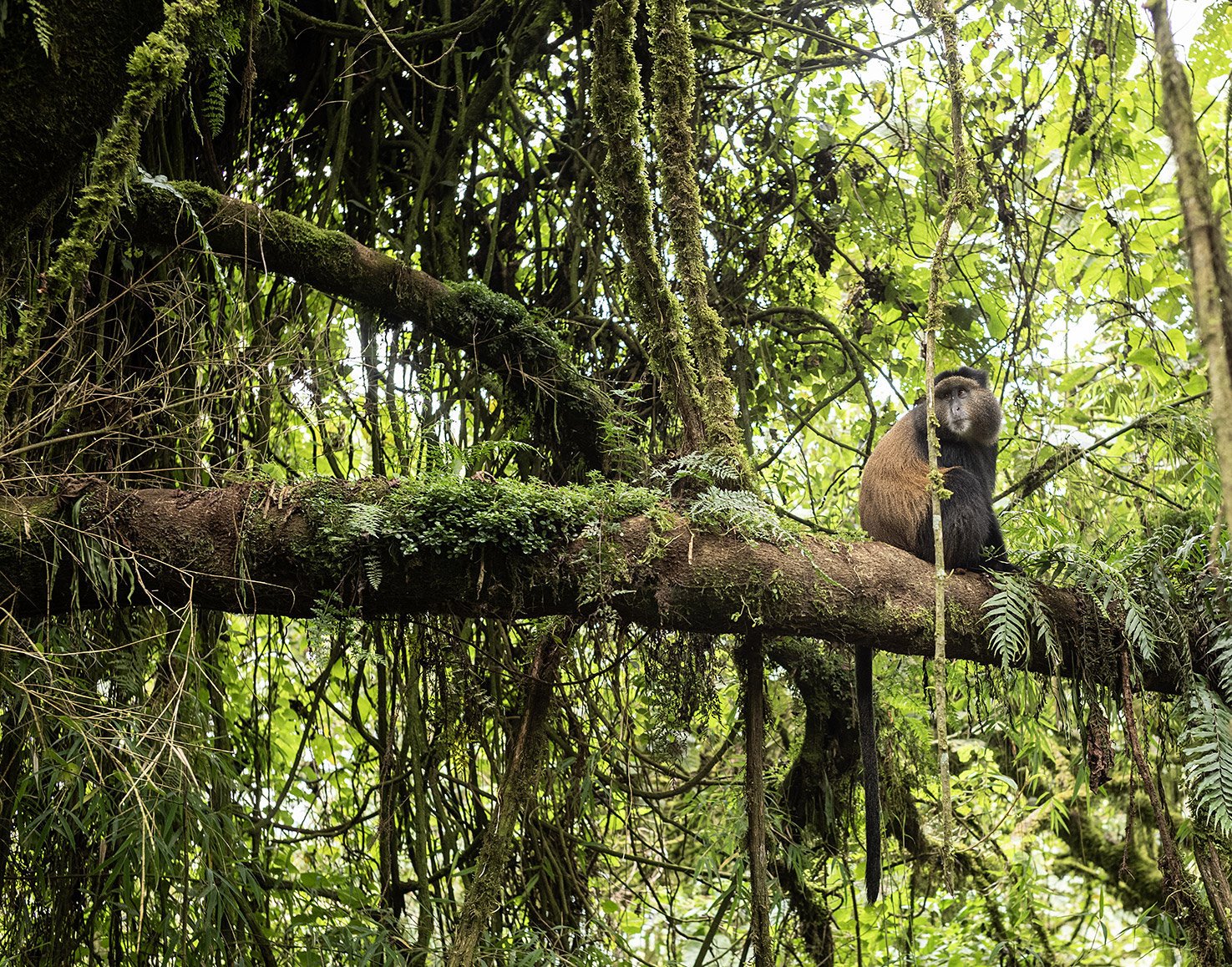
Rwanda & Uganda:
Chapter three
The golden monkeys of Volcanoes National Park, Rwanda.
It’s another early morning as Hussein meets me once again at 06:30.
It’s a repeat of the day before as we drive back to the orientation center to find our trekking groups. It’s a much less chaotic scene; there seem to be fewer Pathfinders and fewer tourists.


The group of people who are there for golden monkey trekking is large, filling the largest seating area in the center. The group I trekked with yesterady are back today, and I spend our time waiting chatting with the father of the family of four.
The briefing is quick, as is the drive to the trailhead. It’s at the edge of town, and when we arrive there are already groups assembled there for gorilla trekking. I spot Odil leading a group including a couple I recognize from the lodge. I say hello to her and extol her virtues to the couple from the lodge.


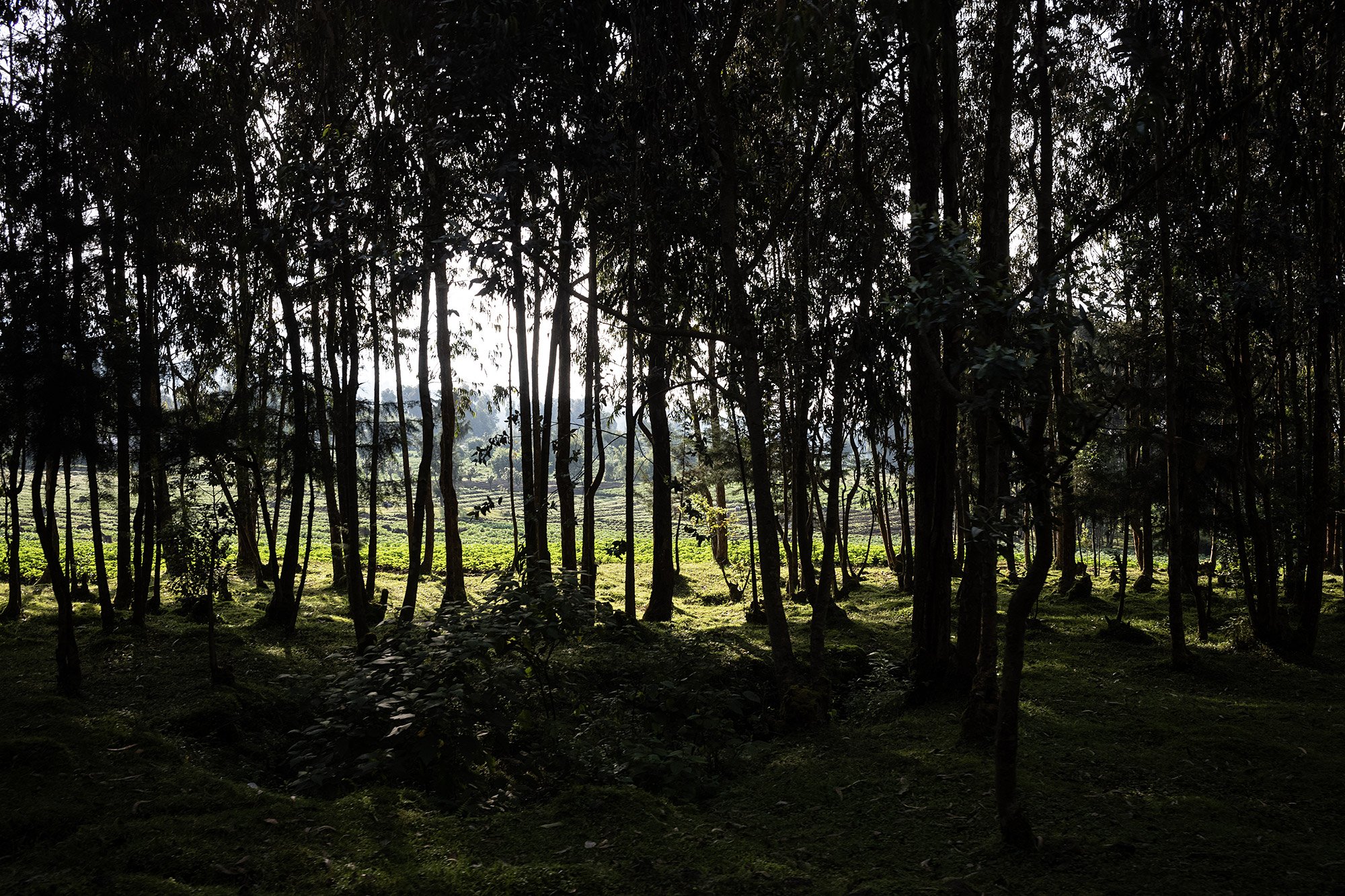
Two guides are introduced to our group. It’s too large to all trek to the same spot and we’re given the option of a short or a too short trek. The difference between the two is about five minutes walking.
They lead us away from town and into the fields. After walking for a few minutes they pause the group and tell us they’ve assessed our fitness levels and are ready to split us in two. They ask those who have flights leaving at the end of the day to step to one side; it’s almost exactly half of the people assembled. They then say that they were planning on putting all of the older people in one group; fortunately, it appears as though they are all in the flight group. They’ll be doing the shorter hike and set off before us.

We continue to hike through the fields, past farmers tilling the soil, preparing the land for the next planting. An even cloud cover renders the sky almost white above us.

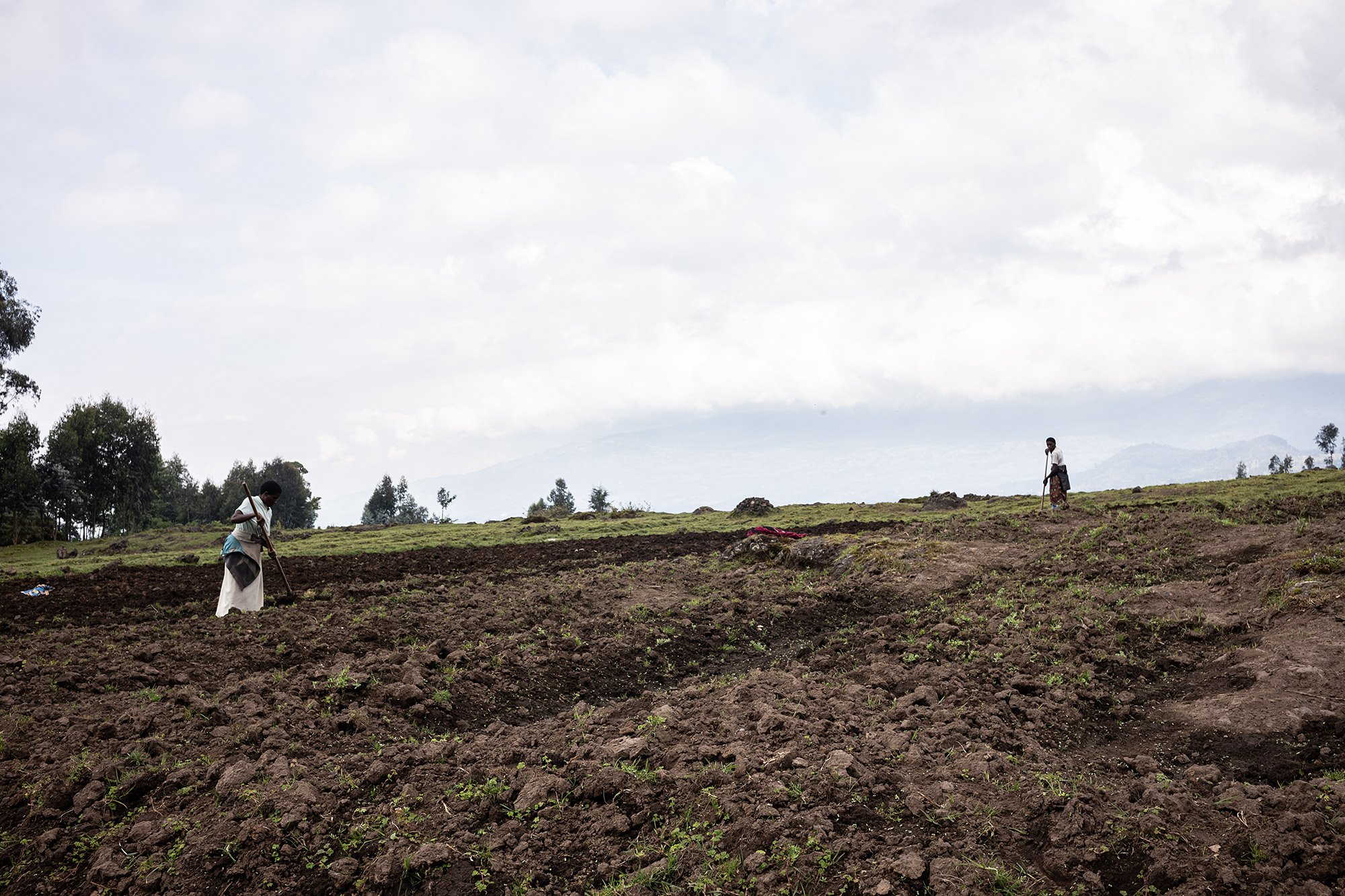
Soon we reach a stone wall. The guide tells us this marks the edge of the park. A ranger with a gun greets us. The guide tells us the monkeys are not far into the park and to caution us against standing under the monkeys for fear of golden monkey showers.
With that, we climb a wooden bridge and cross into the park following the ranger as he leads us on.

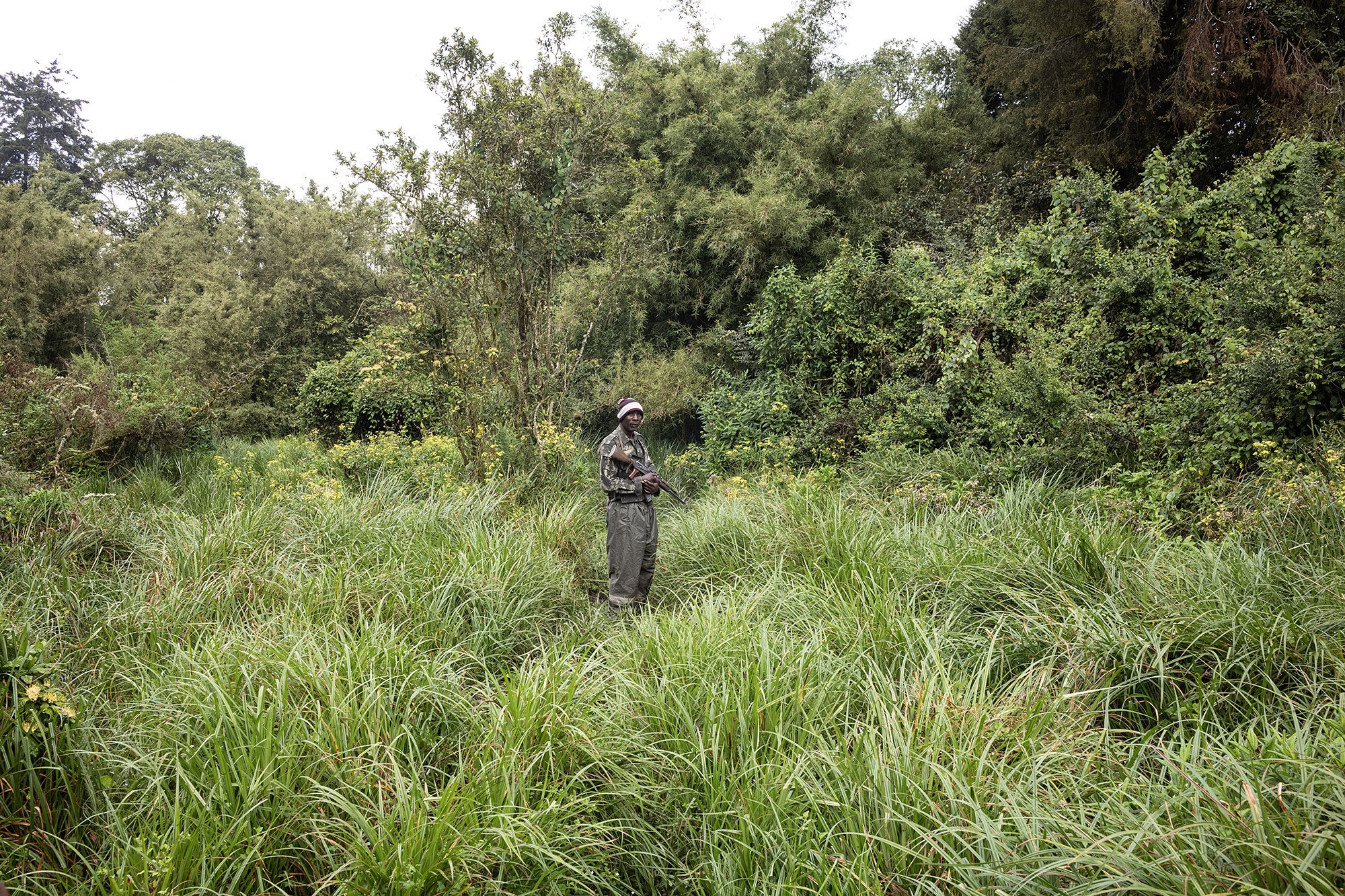
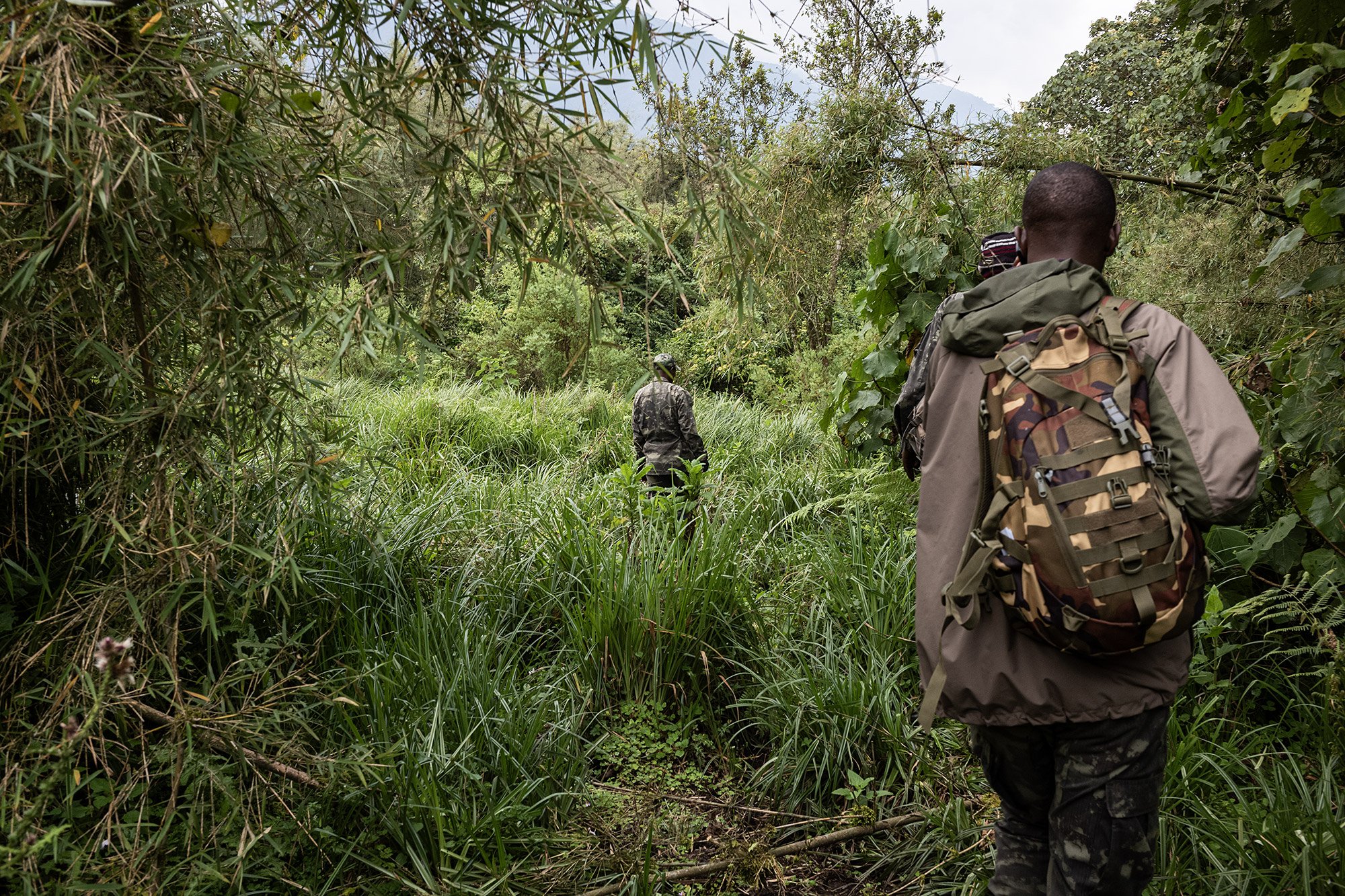
Nearing the monkeys the guide has us drop our walking sticks and bags in a clearing. We’ve spotted one or two climbing in the bamboo above us. As we hike up into the bamboo we spot another sitting on the ground feeding on stalks.


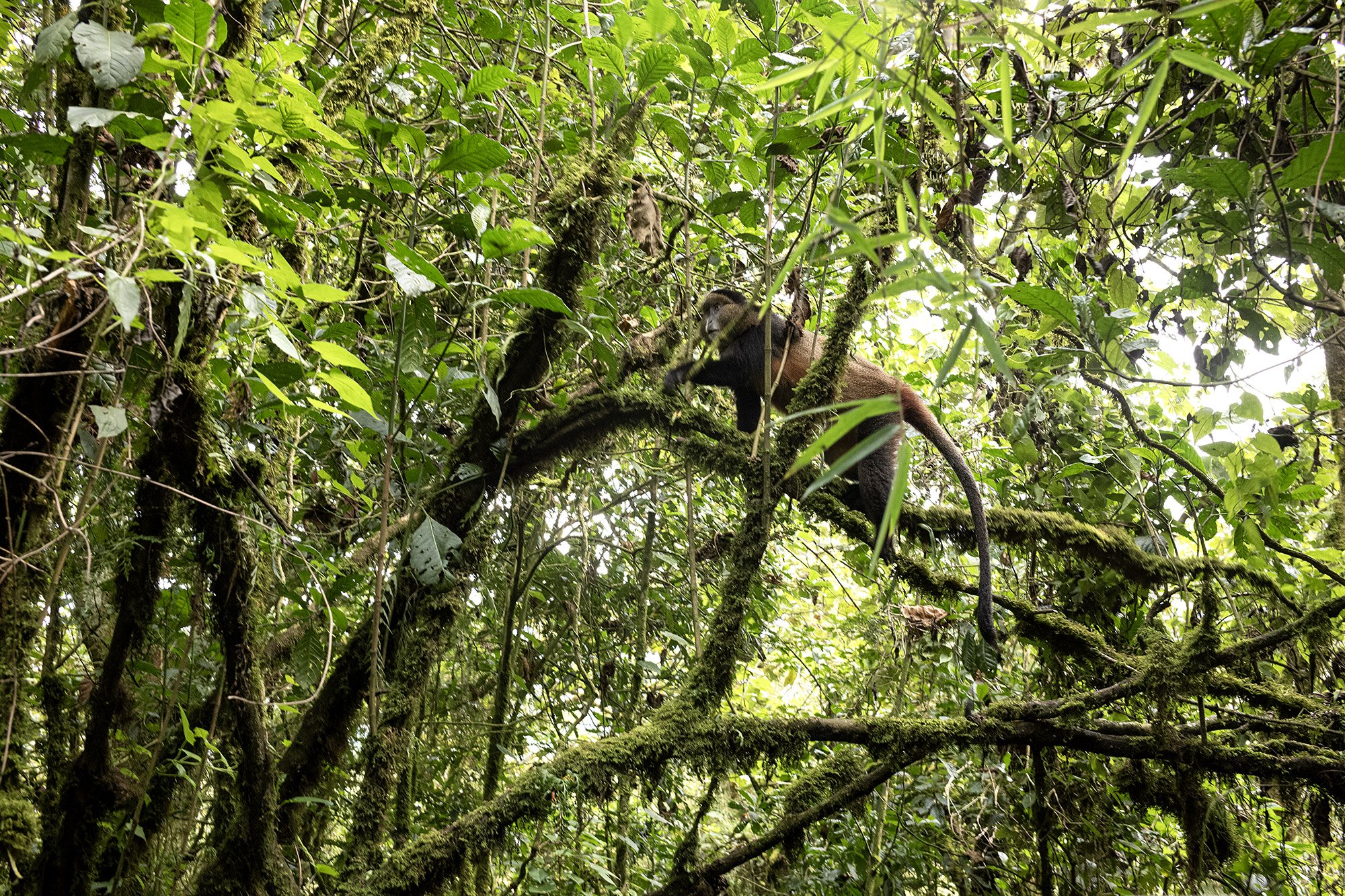
Soon they seem to be everywhere around us. The trackers lead us up the steep slopes of the forest in search of better views and closer looks. For the most part they ignore us, content to go about their business, unpreturbed.
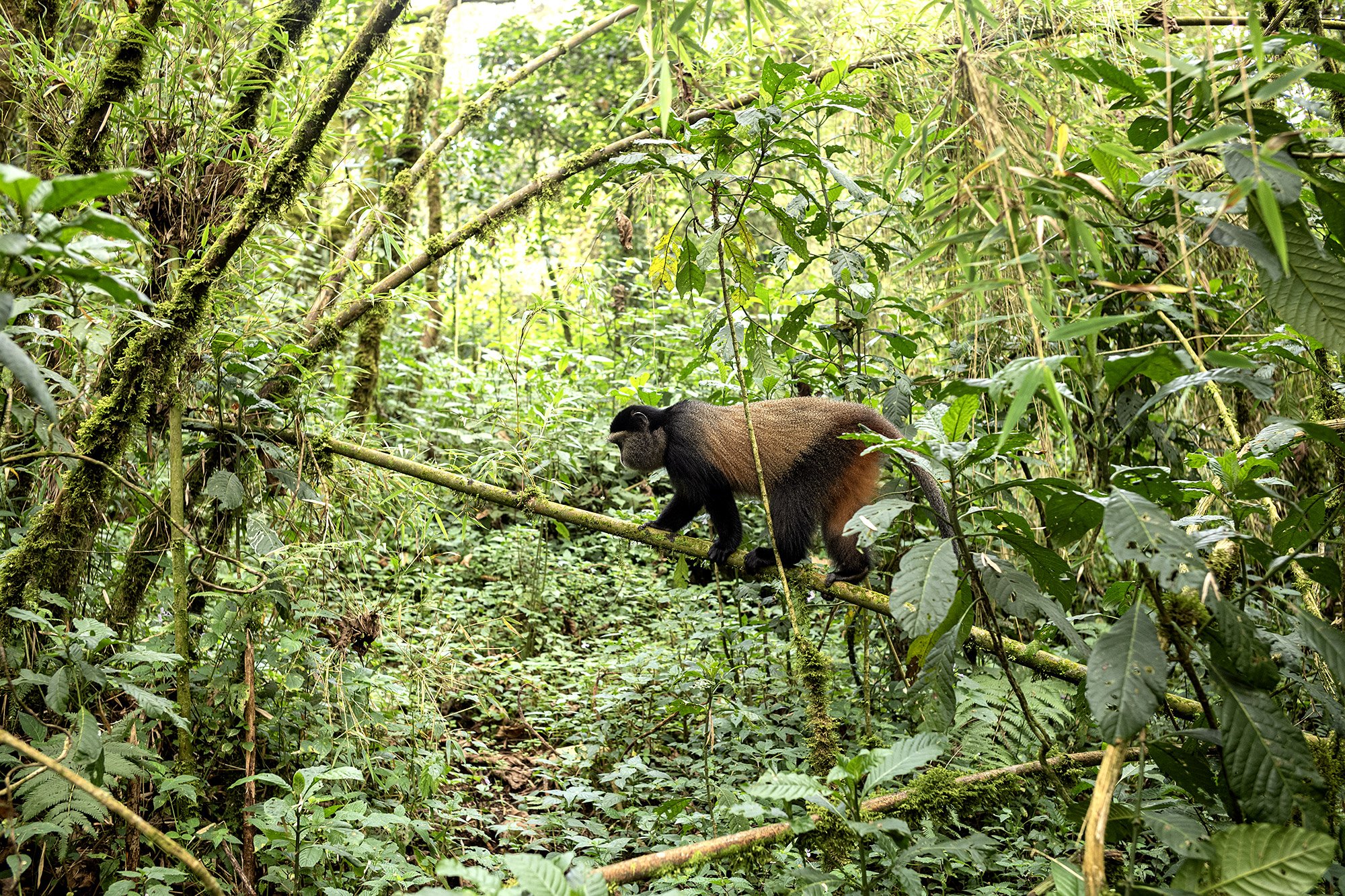
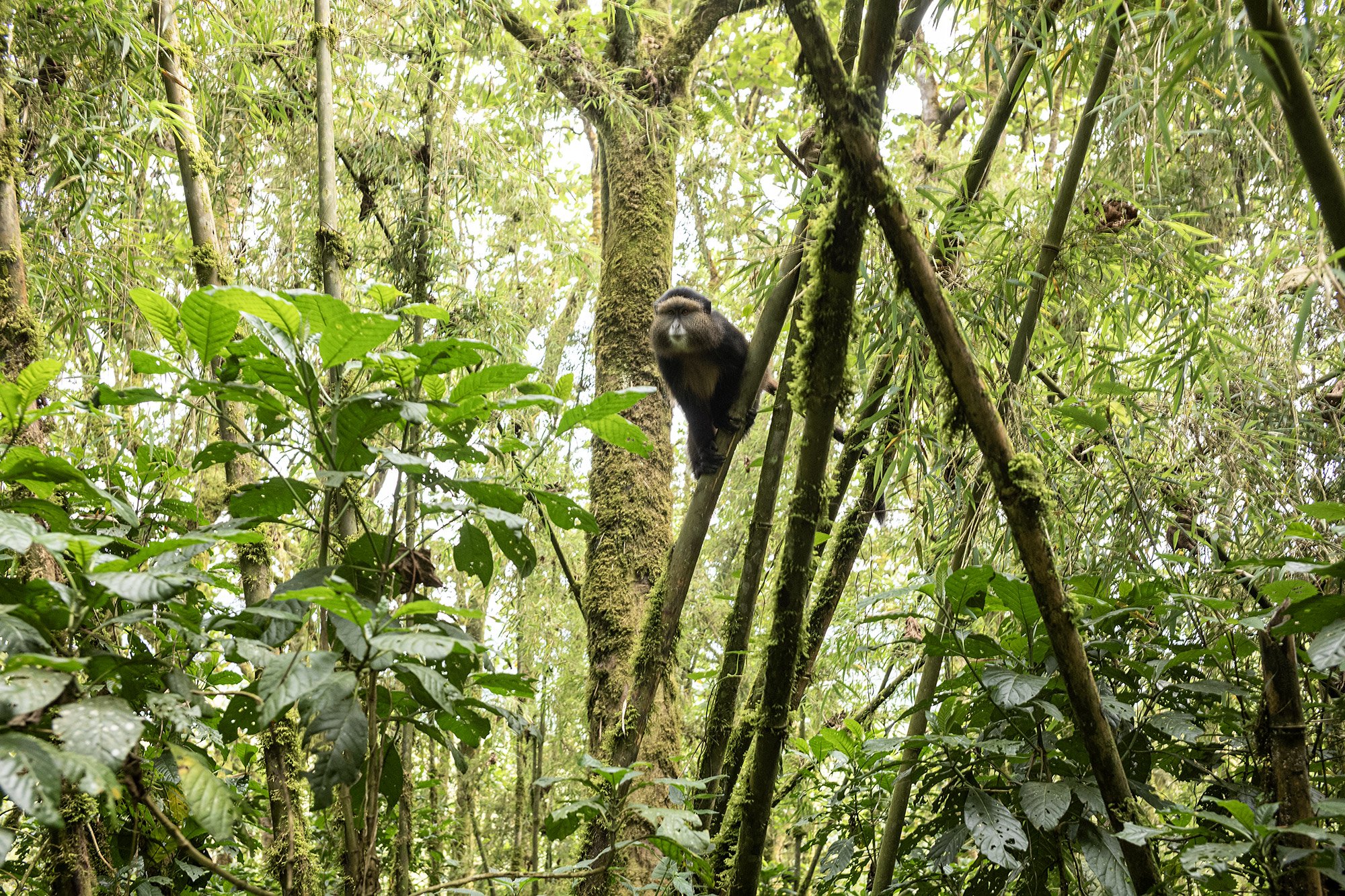


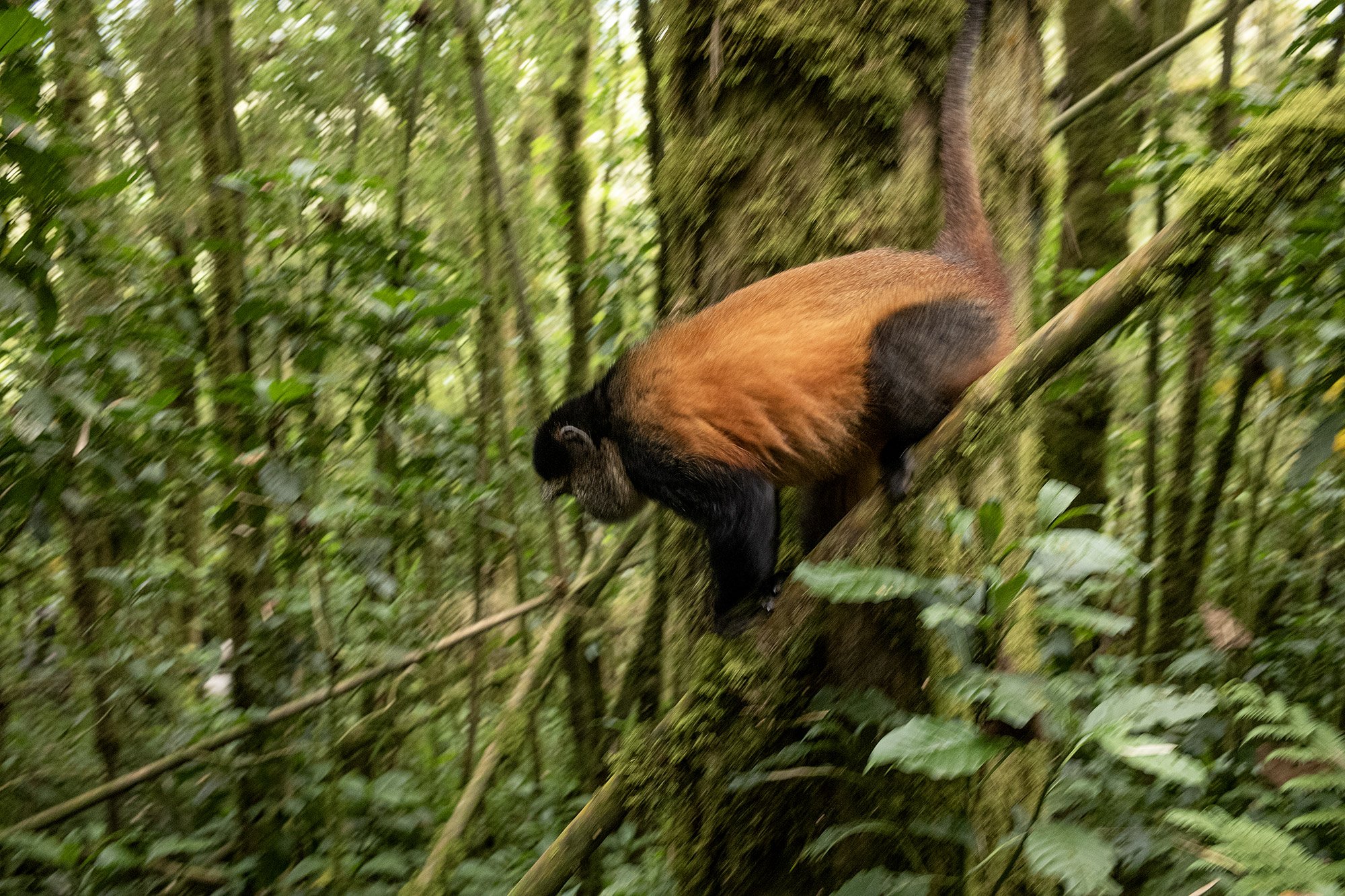
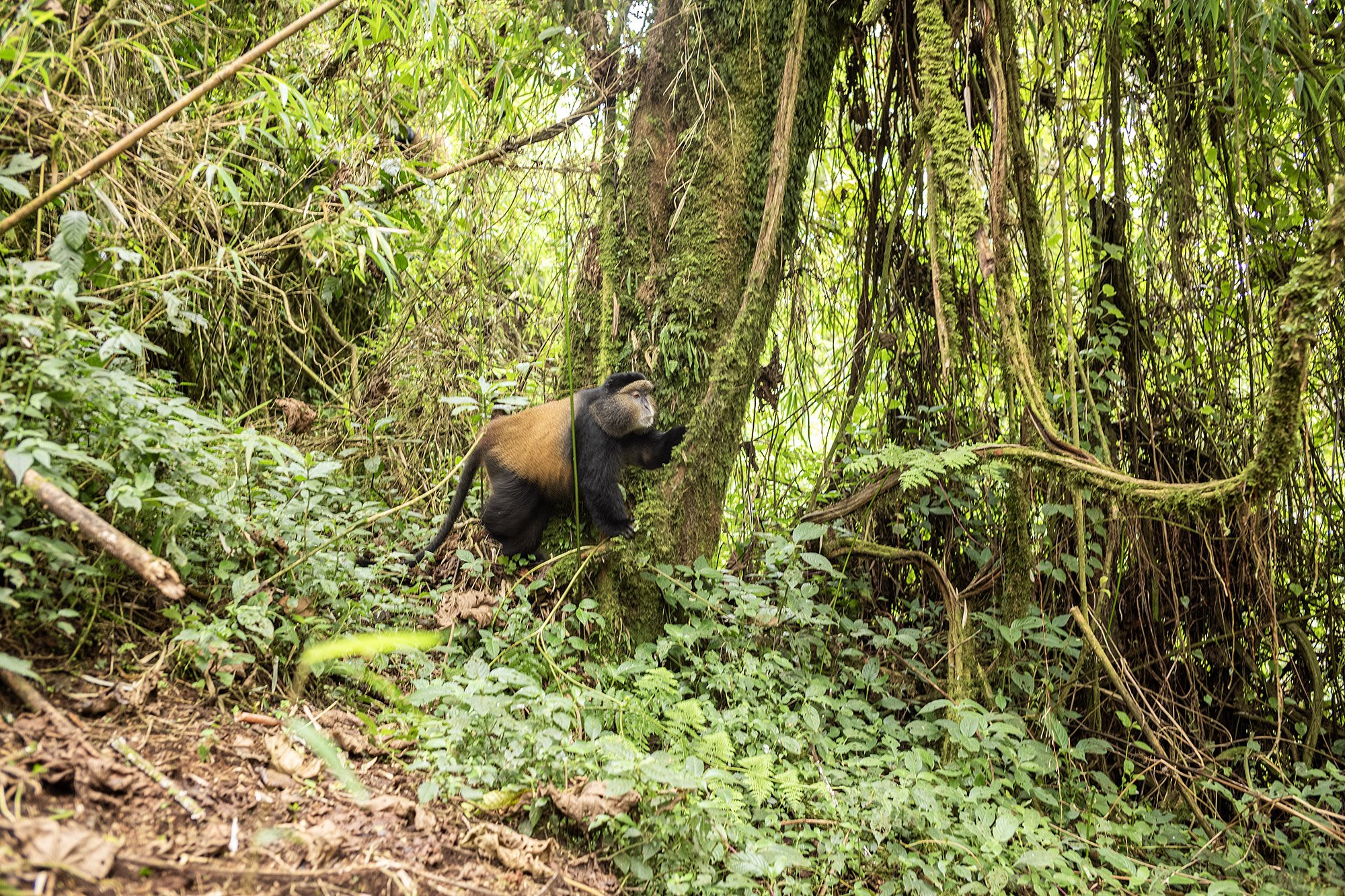
It’s hard to know where to look or where to go. The monkeys are all around us, seemingly everywhere in the dense forest. As I follow the tracker, I stop short just in time. A monkey above me begins to pee just as I become aware of its presence above me.



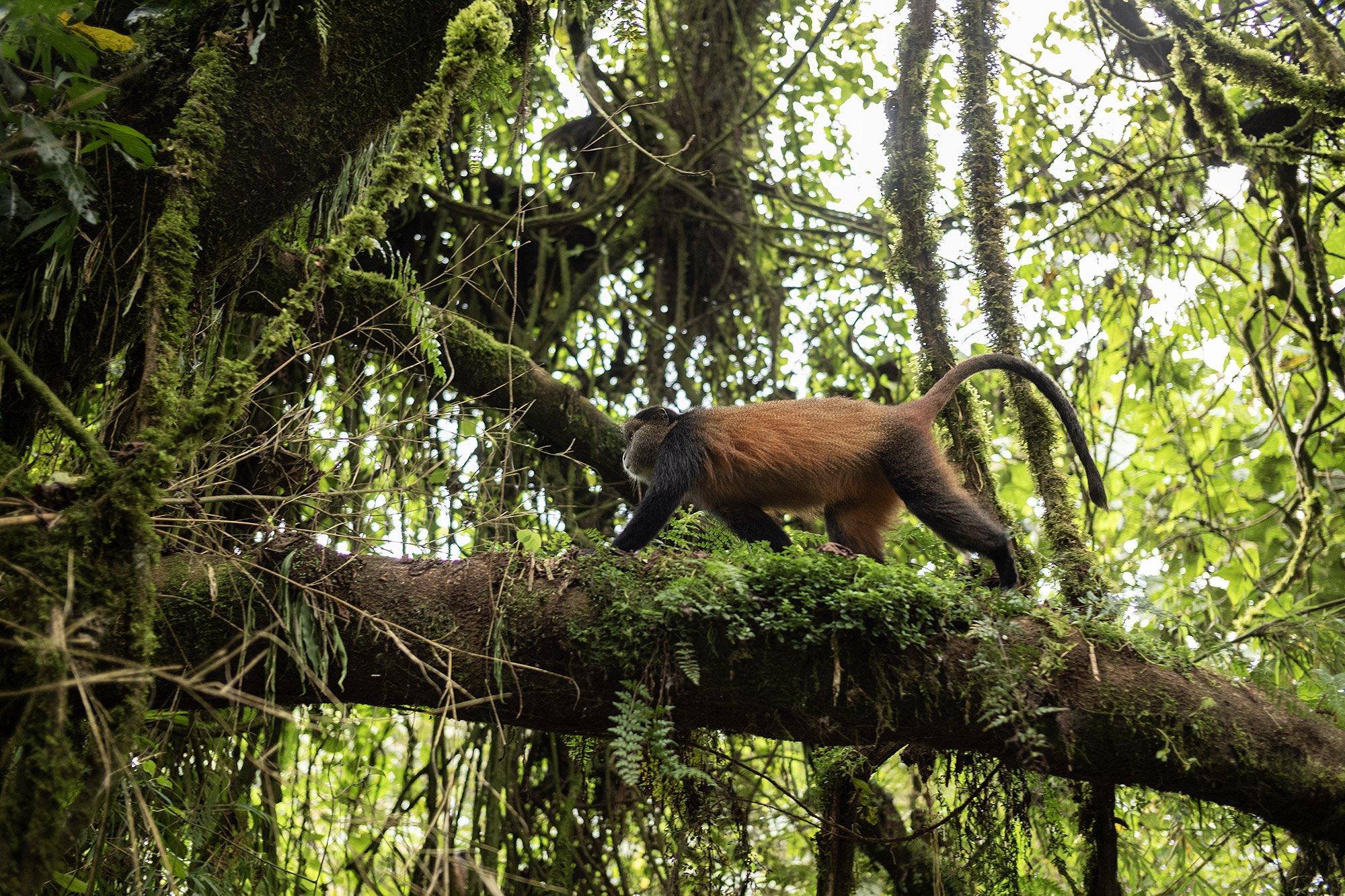
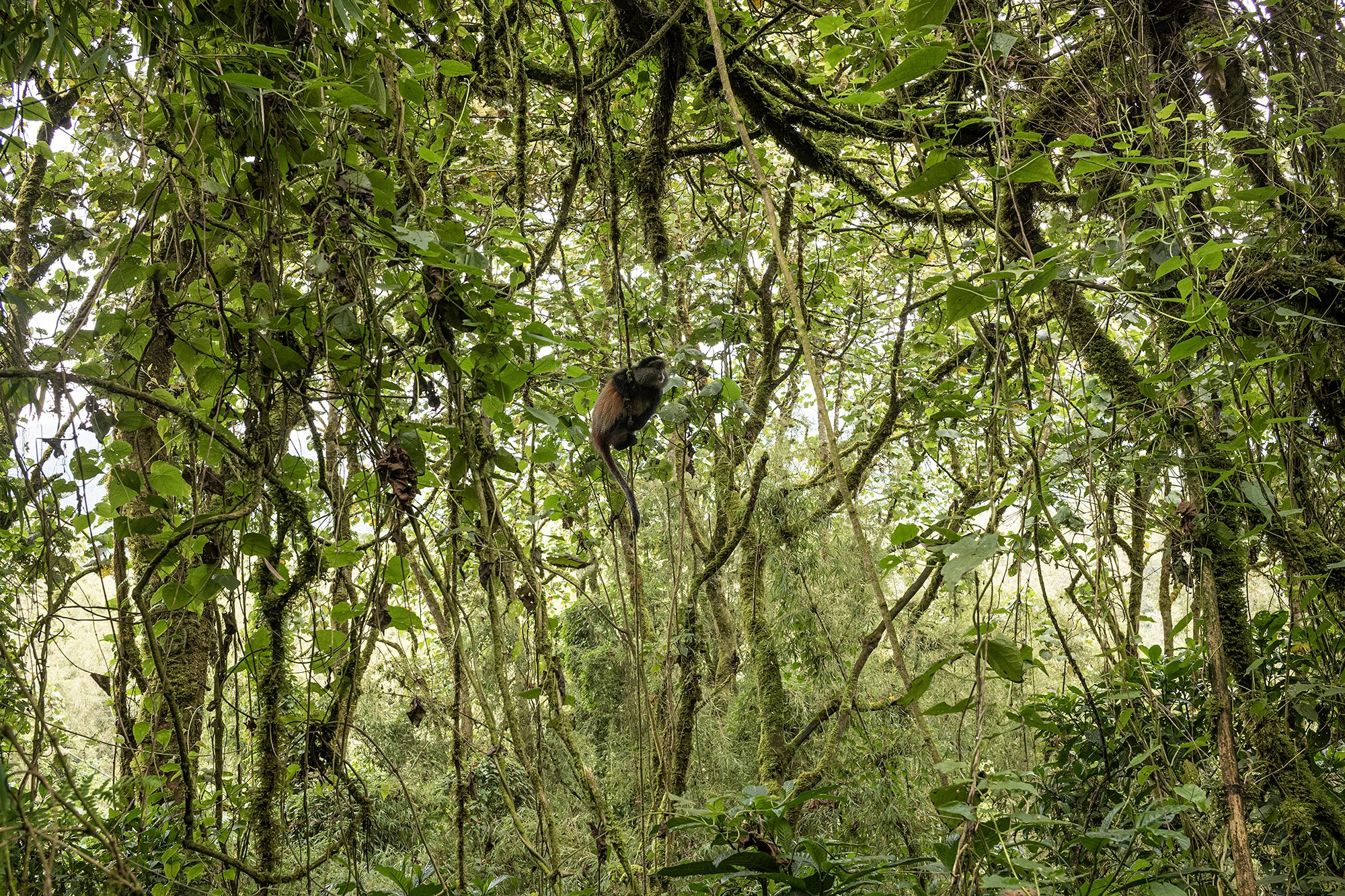

And just like that our hour with the monkeys is over. We’ve separated into smaller groups as we follow different trackers or our own interests. The guide makes it known to the trackers to lead us back down from the hills back to the main path out of the park. Near the stone wall we find our bags and poles in a large clearing. Our guide offers us time to eat the snacks we’ve brought. I offer mine to the trackers and ranger who have accompanied us.
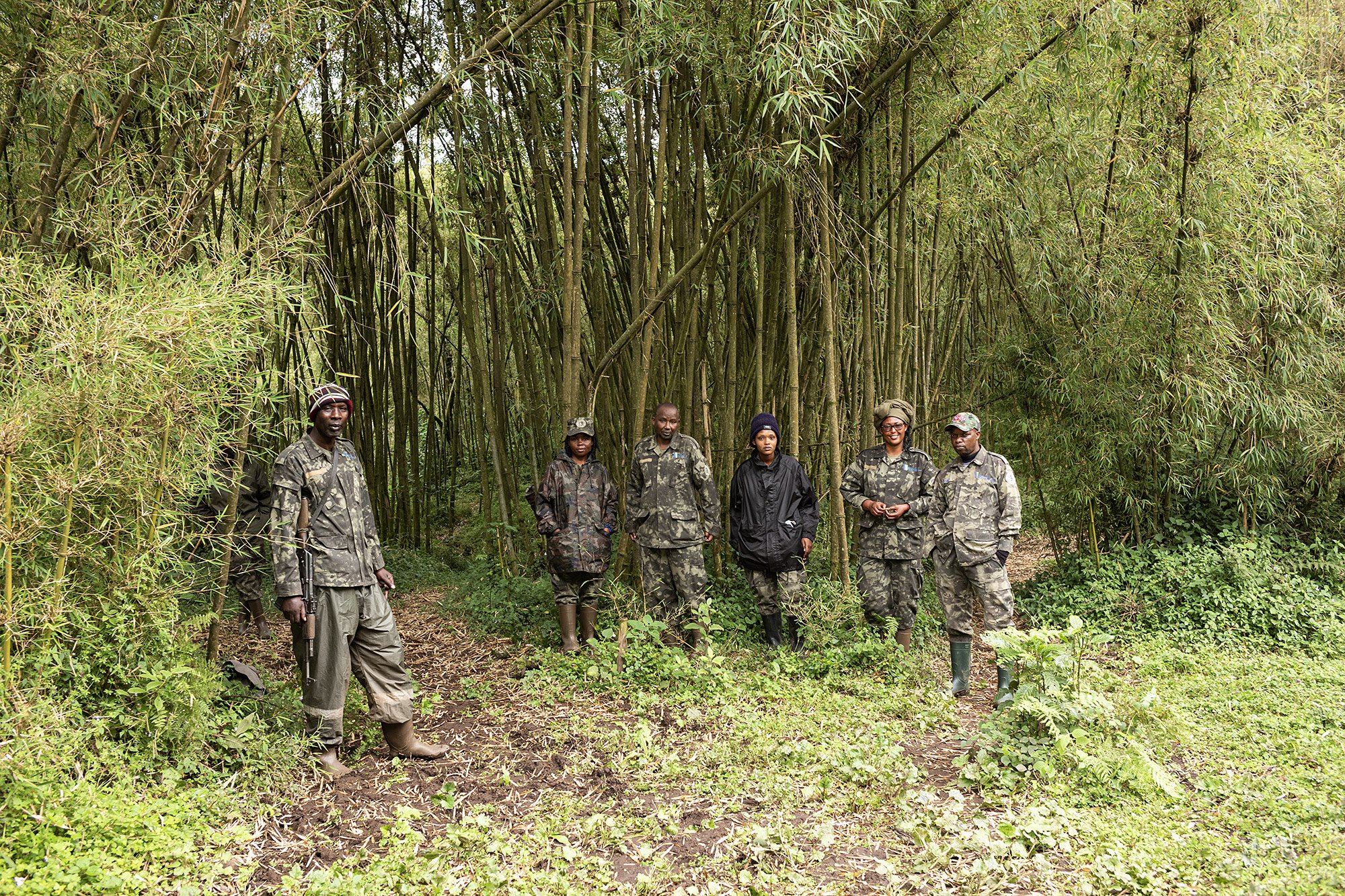
It’s a quick hike back to the village, along the same fields we passed en route to the park. The skies have cleared slightly; clouds crown the volcanoes around us. I walk ahead of our guide and group alongside one of the porters who has a quick step. He chats with another guide and I listen to the lilt of their conversation in Kinyarwanda.

I eat lunch at the lodge. I had considered having lunch in town, but when I arrive back at the lodge Camile encourages me to eat there. They’re expecting me.
After lunch, I meet Hussein at the Pathfinder for the drive back to Kigali. We’re driving back along the same road that brought us to Musanze, and gaze out at the now familliar fields as they pass.

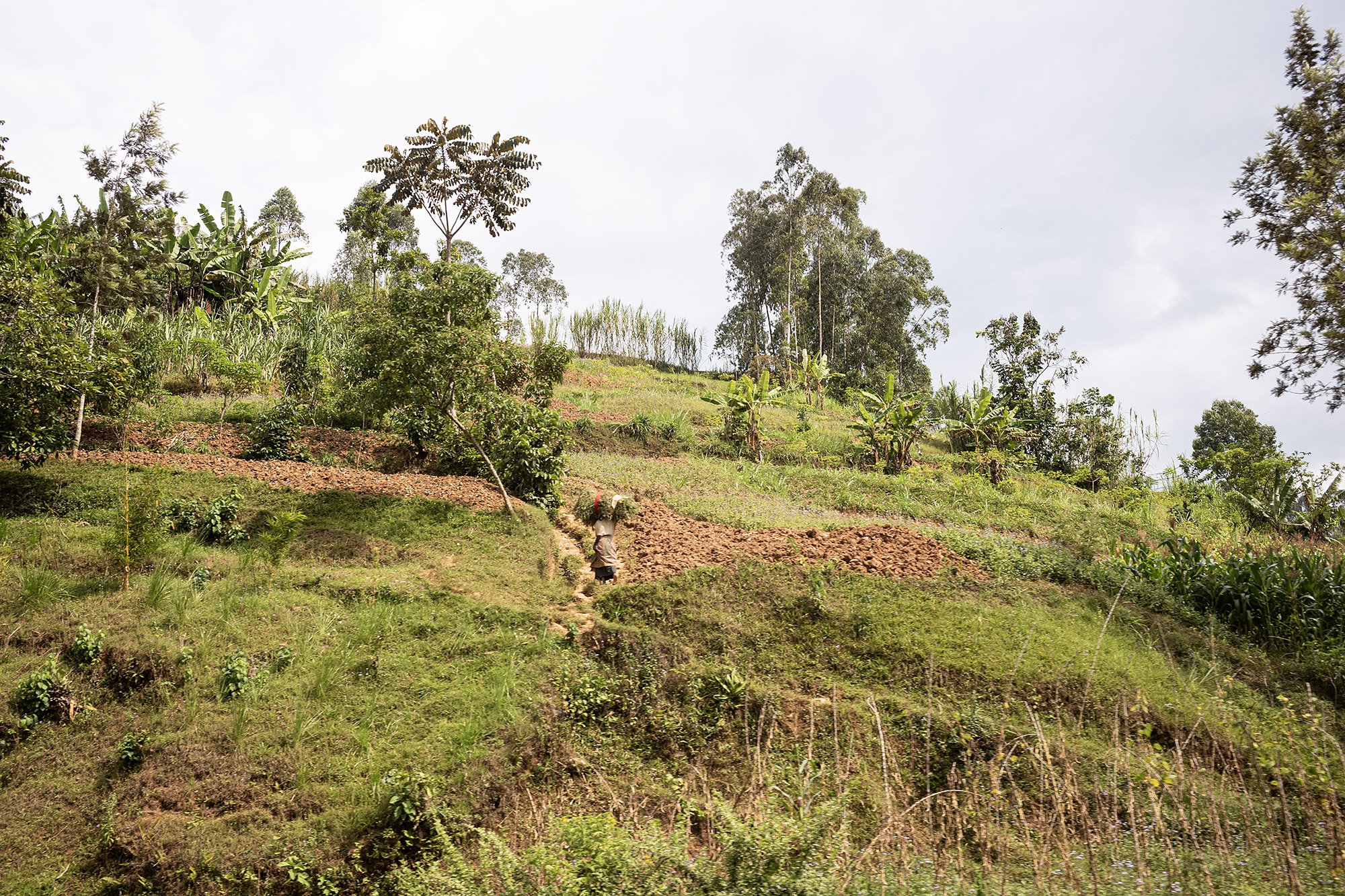
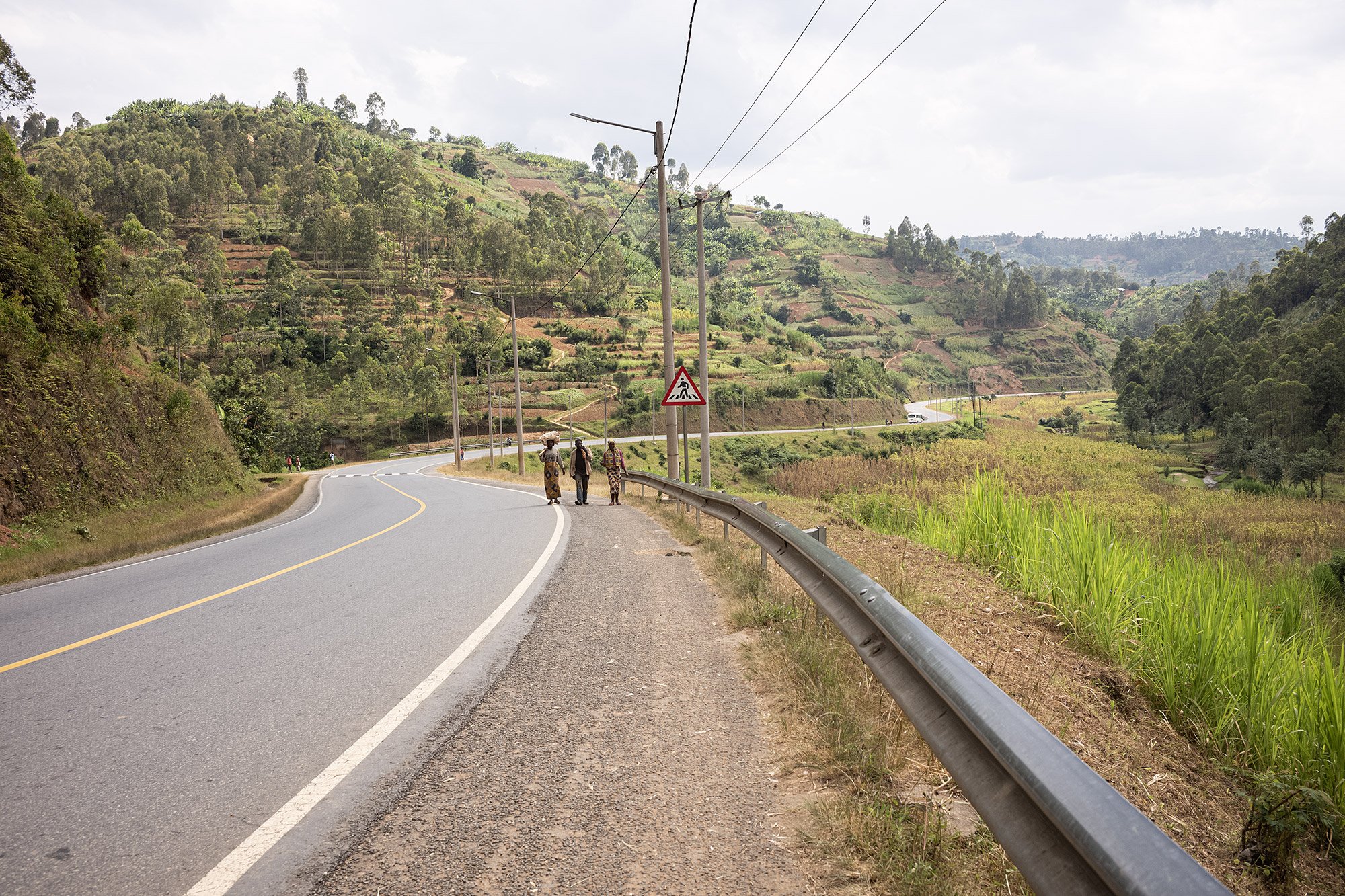
Nearing the city, Hussein points out the Nyabarongo River in the valley below, believed to be the most distant source of the Nile. From here you can navigate all the way to the Mediterranean Sea. He tells me that during the genocide Hutus threw Tutsis into the river to be devoured by crocodiles.
Further on, we pass a school; children are out front playing games in various small groups. I think about what Hussein said in the days before about how the younger generations see themselves as Rwandan only, relegating the Hutu/Tutsi divide to history.

In town there’s traffic. It’s a weekday and we are arriving in the late afternoon during rush out. Moto taxies swarm like flies around the trucks and cars, threading the space between them as they seek to maximize their fares.

Hussein drops me off at my home. I thank him and offer him a tip in Rwandan Francs as well as 200 US dollars. I tell him the dollars are for a gorilla trekking permit though he’s free to apply itto better use; he smiles broadly and tells me he’ll go trekking next weekend. We embrace and I wish him well: Salam alaykum; alaykum salam.
12 June 2023
🇷🇼







